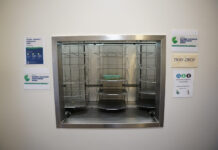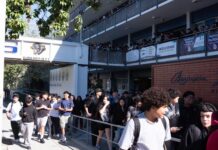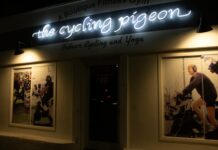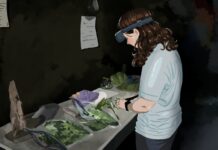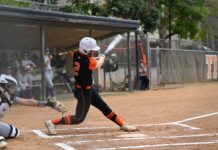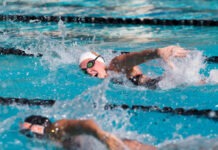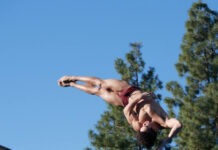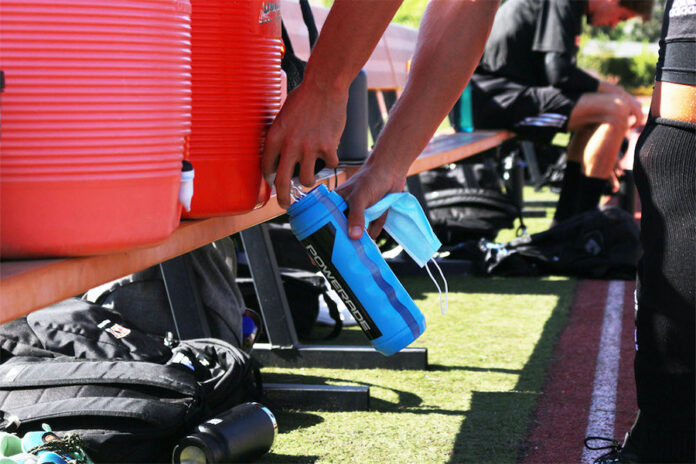
Occidental’s varsity athletics resumed this season alongside the college’s return to in-person operations for Fall 2021. The decision to resume fall athletics after an 18-month hiatus followed the Occidental COVID Operations Group’s (COG) decision to return to in-person residential living arrangements, according to Director of Athletics Shanda Ness.
The athletics department also consulted NCAA and LA County guidelines in advance of the planned fall return and when drafting athletics-specific COVID-19 policies according to Ness. However, these policies have some differences. For example, NCAA and the LA County Department of Health recommend periodic testing for unvaccinated athletes, while Occidental’s policy requires periodic testing for all athletes, regardless of vaccination status. According to Ness, the testing and masking requirements for all in-season student athletes compared to the general student body are aimed at protecting the greater Occidental community.
According to Ness, in-season athletes are classified as a high risk cohort which, according to college policy, is required to get tested once every week for the coronavirus. In addition to required testing, all student athletes are required to wear masks whenever they are not warming up, cooling down or actively training and competing according to Rob Bartlett, assistant athletic director for compliance and head coach of men’s and women’s track & field and cross country teams. This includes wearing masks while indoors, including during travel and training in the varsity weight room.
Daniel Cruz (junior), a member of the men’s water polo team, said wearing a mask has been challenging throughout his training routine, especially when he is training in the weight room.
“I definitely feel the urge to remove it sometimes, because we’re doing a lot of circuits not as high in weight, and that makes you sweat a lot,” Cruz said. “Then I have to get to the MP [Marketplace] afterwards and I’m wearing a sweaty mask.”
However, according to volleyball player Sydney Takuaye (senior) wearing a mask can have an advantage apart from their normal protective functions. Although it is not required to mask up during on-court practices, the team still practices in masks to help build up their endurance during games.
While the new protocols are markedly different from a normal season, Bartlett said they are more impactful on athletes’ time out-of-competition than it is on training or games.
“The changes are really just in terms of us being mindful of what we do around practicing and competition, but in terms of what’s happening in practices and competitions, it is really no different,” Bartlett said.
Anaise Nugent (junior), a member of the women’s soccer team, said despite there being a higher percentage of first- and second-year players new to college soccer because they spent their last year off campus, the more experienced team members have still been able to guide the underclassmen.
“It’s explaining to them SCIAC, the different playing styles of other teams, how our program work, how the coaches work,” Nugent said. “It took a second for us to congeal, and everyone learned each other’s style of play.”
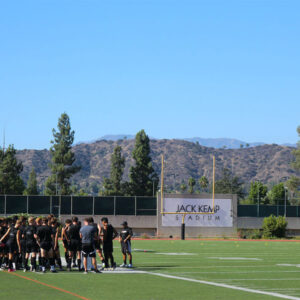
While competitions schedules remain largely unchanged, Ness said some teams will limit their travel to within the state of California. The men’s water polo team will only play in-state schools this season which, according to Cruz, is a change from prior years.
Mitchell and Cruz said the uncertainty surrounding the pandemic, and the subsequent disruptions and disappointments that may happen as a result of an outbreak, hold more significance in their day-to-day life than the testing and masking requirements.
“The absolute biggest change has nothing to do with our schedule or protocols, it’s just the stress,” Mitchell said. “Constantly being worried about, ‘Does somebody have COVID?’, ‘Do I have COVID?’, ‘Will I get COVID?'”
Cruz said given the volatility of the situation surrounding the pandemic, he does not take any day in the pool for granted.
“Just knowing that it could be taken away from us any second, you [have] got to give your all every practice,” Cruz said.
Bartlett said both he and the track & field team are cherishing a return to the sport they love.
“We were unable to do anything for a year and a half, [so] we will gladly do anything if we get to do the things we love,” Bartlett said. “It’s a very small price to pay to be able to be physically on campus, and to be able to practice and compete.”
![]()




